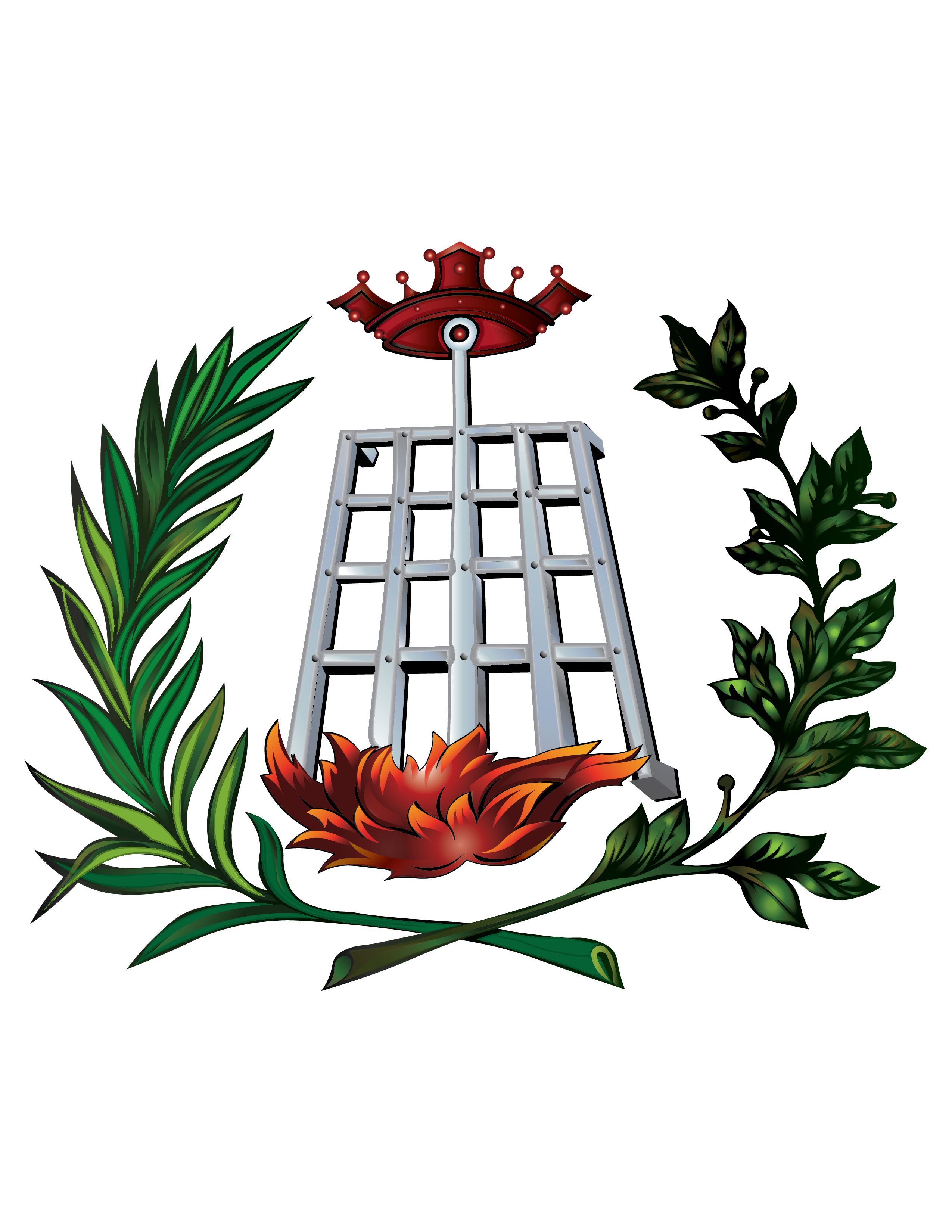Mro Ignazio Catania (1883 – 1884 / 1885)
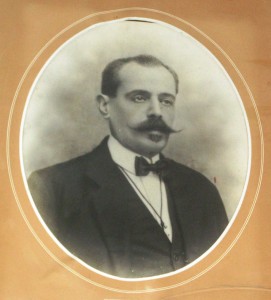
Ignazio Catania, who had a crucial role in the re-organisation of the Unione band, was born in Cospicua on 29 January 1860. He was the son of Ġiljan and Reġina German. He began his musical studies with the San Giorgio Band Club of Bormla, where he studied the clarinet and ended up one of the best soloists. Hearsay has it that Mro Catania used to impress everyone whenever he performed a solo with the band. He furthered his musical studies and was appointed Assistant conductor of his band club. In 1883 he was appointed Musical Director of the Mannarino Band of Żurrieq, whilst teaching music to all students of this band club.
Throughout his career, Mro Catania was appointed musical conductor of a number of band clubs, among these San Leonardo of Kirkop, De Paule of Paola, Annunciation Band of Tarxien and also Beland of Żejtun. Among his numerous compositions, one can find the hymn Vi Salvi il Ciel Magnanimi, the Polka La Rosa, the musical piece San Giorgio a Mare and a number of waltzes such as Otto Dicembre, Due Ladri and Spasimenti. Mro Catania died in Bormla aged 79 years, on 4 August 1939.
Mro Carmelo Abela (1884 – 1885 / 1888 – 1889)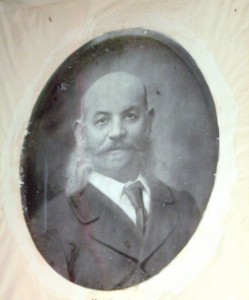
Although little is known about Mro Carmelo Abela, he was one of the finest musicians of the late 19th and early 20th centuries. Mro Abela was famous for the composition of arrangements of Opera Selections to be played by the band clubs. Throughout his career, Mro Abela was conductor of a number of local bands, such as our band club, San Giorgio of Bormla and is also considered as the first conductor of the Saint George Band of Qormi. Another confirmation of his influence in the musical sphere is the fact that the La Valette Band Club committee had consulted Mro Abela when there was the need of appointed a new Maestro, and most probably, Mro Vincenzo Carabott was appointed conductor of this band in 1889 on his consultancy.
Mro Gaetano Grech (1889 – 1905 / 1909 – 1910)
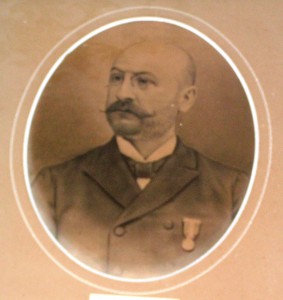 Mro Gaetano Grech, nicknamed palazzi, son of Angelo and Teresa Fiammingo, was born in Senglea on 19th September 1855. He received the first musical teachings as student of his uncle, Mro Giorgio Fiammingo, where he learned the clarinet and violin. Mro Grech furthered his studies under the wings of more musical teachers such as Mallia Cassar and Paolino Vassallo. Hi career as Musical Director began with Senglea’s Band Club, at the time named La Vincitrice and later on Queen’s Own. Throughout his career, apart from being Musical Director of this band, he was also band conductor of other band clubs such as La Valette and Kng’s Own ofValleta, Unione of uqa, San Giorgio of Bormla and also L’Isle Adam of Rabat.
Mro Gaetano Grech, nicknamed palazzi, son of Angelo and Teresa Fiammingo, was born in Senglea on 19th September 1855. He received the first musical teachings as student of his uncle, Mro Giorgio Fiammingo, where he learned the clarinet and violin. Mro Grech furthered his studies under the wings of more musical teachers such as Mallia Cassar and Paolino Vassallo. Hi career as Musical Director began with Senglea’s Band Club, at the time named La Vincitrice and later on Queen’s Own. Throughout his career, apart from being Musical Director of this band, he was also band conductor of other band clubs such as La Valette and Kng’s Own ofValleta, Unione of uqa, San Giorgio of Bormla and also L’Isle Adam of Rabat.
Mro Grech was also appointed honorary director of the Prince of Wales Own Band Club of Vittoriosa, and also conducted this band on a number of special occasions. He was also conductor of a new band, which for a number of years, existed in Valletta under the name of Otto Settembru. Mro Grech also conducted a number of military bands pertaining to the British Forces situated in Malta. He was also popular for his numerous compositions, and among these, one may note the symphonies Figlia del Re pipino, Penserio Melanconico and La Bella Melita. Mro Grech was unfortunate enough to have died during the composition of the first act of the Opera Le Prime Crociate. One can say that during his tenure at our club, he was very well respected, and this was proven by the fact that during a musical programme, or even during a meeting at the club, he used to receive a number of presents and commemorations, donated by followers of the band. In 1905 he left this band in order to join once again the Queen’s Own Band Club of Senglea. Mro Abela died aged 83 in 1938.
Mro Alfred P. Hare (1905 -1906 / 1910 – 1912)
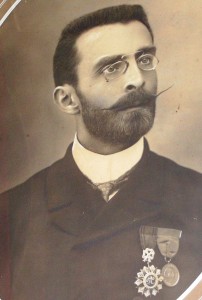
Mro Hare was born in Valletta in 1865. He attended school at the Mdina Seminary and began his musical studies aged 16. It was evident from the beginning that Mro Hare was a brilliant student, since h had won a scholarship and furthered his studies in the Conservatorio Musical San Pietro a Majella in Naples. The progress registered in these years was notable, and at 20 years of age he was already appointed director of the Posillipo Band. Following examinations of his compositions by popular musical directors such as Rossi and Falcone, he was certified as being qualified enough to be appointed musical director of any band club.
In 1885, Mro Hare went to India where he was appointed Maestro of a number of local bands, especially military bands. In India, he was popular for a concert made with a band made up of 200 elements. Mro Hare returned to Malta in 1903 and was appointed musical director of local bands, such as King’s Own of Valletta, Duke of Connaught of Birkirkara, Prince of Wales Own of Birgu, La Stella of Victoria Gozo, Pinto of Qormi and also Saint Philip of Żebbuġ. He is also popular for the enormous number of musical compositions, but the most popular were the symphony Rec, the symphonic march Flangar non Flector and the hymn A San Domenico. Mro Hare also possessed a personality which permitted him to have a great number of friends. He also knew to speak a number of languages and thus the Government appointed him an interpreter in the law courts. Mro Hare died in 1932, aged 67 years and is buried in the Addolorata Cemetery in Paola.
Mro Durante Magri Grech (1906 – 1907)
Mro Durante Magri Grech was a disciplined Musical Director and this came to no surprise since he was a member of the military service. Following the termination of his musical studies, he was engaged as a soldier in the Royal Malta Militia Regiment. Following that, he was promoted to Sergeant and appointed musical director of the Regiment’s Band. When Mro Magri Grech was appointed director of the Duke of Edinburgh’s band, he was assistand Director of MRo Hare at the King’s Own Band Club. In fact, it is suspected that his appointed came following a recommendation of Mro Hare.
The news as given in local newspapers was somewhat late since MRo Mgri Grech wa already conducting the band in 2 musical programmes done on the occasion of the Żabbar Feast on the 8 and 9 September. On this occasion, Mro Magri Grech introduced for the first time the passo doppio, which was never played and interpreted in previous performances. The first was the Orientale of Ferradini. The same 2 programmes done at Żabbar were repeated the following week on the occasion of the Saint Dominic Feast in Vittoriosa, and he added the Polka Margherita of Mro Vella Selections from La Maritana of Wallace, which were both new to this band. Most probably, these two programmes in the feast of Saint Dominic were the last musical performances under his baton.
The directorship of Mro Magri Grech was not destined to remain for long. He was appointed Maestro in times when the local band clubs were reaching a very high level. Thus, as a result of the piques between band clubs, the supporters of these band clubs were ready to do sacrifices in order to see their favourite band as perfect as possible. And for this reason, foreing band conductors were being appointed as Maestros in the local scene.
Mro Giovanni Giumarra (1907 -1909 / 1912 – 1924 / 1930– 1936)
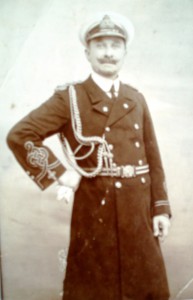
Among those band clubs who wanted to have a foreigner as Musical Director, the Duke of Edinburgh band club was one of the first. This dream became reality when at the end of 1906, Mro Giovanni Giumarra arrived in Malta from Sicily to succeed Mro Magri Grech as Maestro. Mro Giumarra was born in COmiso, Sicily, in 1861, son of Vincenzo and Annunziata Baglieri. At 12 years of age he was already in the musical sphere and showing his huge potential. Following a success in an examination, he was appointed substitute director and clarinet soloist with the Sortino Band. A few years later, he was also appointed assistant director and Director of the Noto Municipal Band. During his tenure as Maestro of this band, great progress was registered to the extent that it was being invited to perform musical programmes throughout the year. Apart of being Musical Director of the Duke of Edinburgh Band, Mrio Giumarra was also director of the Vilhena Band of FLoriana, San Giorgio of Bormla and also Leone of Victoria, where he remained Maestro for 10 years.
Mro Giumarra was well trained in instrumentalisation of band clubs, and following musical programmes, he always left a good impression, especially in programmes which were directed in the Royal Theatre, Manoel Theatre and Circolo Brittania. He left a number of compositions, where it was clear that these were of other level. He used to compose both sacred and also non-sacred music, and most of them were printed and published by a number of music houses. He also composed hundreds of marches, symphonies, intermezzi and other composition which were popularly sought after in Europe and even in the Americas and Africa. In two of his last compositions, Mro Giumarra showed his passion for Vittoriosa, where he dedicated the Recordare to the leadership of the Parish Church, whilst Ai Caduti del 1565 was dedicated to all Vittoriosa citizens.
His vast successes in international musical competitions in which he participated show that he was a high profile musician, especially with the honours given in such competitions. Two of these, considered as the most prestigious, were a First Grade Diploma and a Silver Medal in Palermo and in another one in Salerno, he obtained another First Grade Diploma and the Golden Medal. After 29 years in the local band clubs scene, Mro GIumarra died on Christmas eve of 1936 in Ħamrun.
Mro Paċifku Scicluna (1924 – 1925 / 1927 –1930 / 1936 – 1952)
Mro Scicluna was born in Bormla on 14th August 1876. After a few months, his family moved to Birgu, where Mro Scicluna was raised and lived till he died. He began his musical studies at the age of 9 with the Unione Band Club and made his first appearance as a percussionist with the same band. Following this, he also learned the clarinet and further his studies with Maestros Catania, Abela, Ricci, Doncich and Grech.
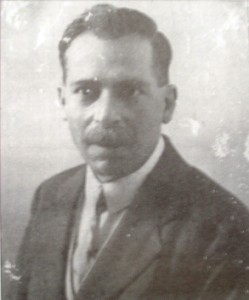
In 1903, at 27 years, Mro Scicluna was appointed musical director of the Maria Mater Gratiae band club of Żabbar. With this band club, Mro Scicluna was band conductor for 4 times and remained conductor for a total of 29 years, till his retirement in 1951. In August of 1906, Mro Scicluna was also appointed musical director of the Prince of Wales Own Band of Vittoriosa, where he lasted till February 1914. Mro Scicluna was also director of the De Rohan band club of Żejtun, Saint Joseph of Msida, Victoria of Mellieħa and for manay years the Duke of Edinburgh, the main band club of Vittoriosa. For some time, he was also employed as bandmaster with the British Naval Fleet. On some occasions, Mro Scicluna was invited to be the director of the San Giorgio Band of Bormla, Unione of Luqa and King’s Own of Valletta. He was also director of small Orchestras in Isla in 1907, an orchestra of the Prince of wales Own Band in 1909 and another one which began in 1904. Mro Scicluna taught music to a great number of youths and with these youths he had formed a youth band in the Duke of Edinburgh band club.
Mro Scicluna left a great number of various compositions, such as waltzes, symphonies, marches and hymns. Among these, one can note the Salve MAria Salve of Żabbar, which is know as the Ave Maria with the fanfare, Inno all’Assunta found in Dingli and Inno a San Domenico. Mro Artz admired Mro Scicluna and apart from leaving a certificate in writing, which is still conserved at the club, when he arrived in Malta and saw Mro Scicluna directing the band, he had exclaimed: “Why there was the need of bringing me in when you already have a great one here?”.
Mro Scicluna also left memoirs, which unfortunately have now been lost, as regards the re-formation of this band club in 1883. Mro Scicluna died aged 81 years in Vittoriosa, on 20 September 1957.
Mro Carl Maria Artz (1925 – 1927)
Mro. Carl Maria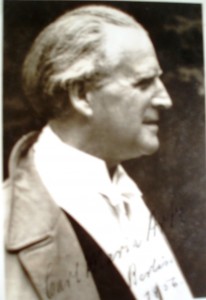 Artz twieled f’Dusseldorf, il-Ġermanja fl-1887. Ħa l-ewwel tagħlim tiegħu fl-arti mużikali f’din il-belt meta kien għadu żgħir u kompla jipperfezzjona f’din l-arti wara li beda jistudja wkoll il-pjanu fi Dresden, Liepzig u Munich. Fl-istess ħin, kompla jitħarreġ fil-kompożizzjoni u d-direzzjoni għand l-aħjar professuri ta’ dak iż-żmien, fosthom Felix Draesecke, ħabib u kollega ta’ Listz u Wagner.
Artz twieled f’Dusseldorf, il-Ġermanja fl-1887. Ħa l-ewwel tagħlim tiegħu fl-arti mużikali f’din il-belt meta kien għadu żgħir u kompla jipperfezzjona f’din l-arti wara li beda jistudja wkoll il-pjanu fi Dresden, Liepzig u Munich. Fl-istess ħin, kompla jitħarreġ fil-kompożizzjoni u d-direzzjoni għand l-aħjar professuri ta’ dak iż-żmien, fosthom Felix Draesecke, ħabib u kollega ta’ Listz u Wagner.
Sa mill-bidu nett, permezz tal-għadd ġmielu ta’ kanzunetti mill-isbaħ, kompożizzjonijiet għall-pjanu u musica da camera Artz wera ħila mhux komuni. Aktar m’għadda żmien, aktar dehret ħiltu meta bdew jinstemgħu is-sinfoniji għall-orkestra u magħhom ukoll xi opri teatrali li beda jikkomponi. Ħiltu fid-direzzjoni dehret minn kmieni, għax ta’ 22 sena kien ġa dderieġa l-aqwa orkestri sinfonici ta’ diversi bliet Ġermanizi, fosthom dawk ta’ Liepzig, Dresden u Munich. Fl-1913, ta’ 26 sena inħatar direttur tal-famuża orkestra filarmonika tal-kapitali Berlin, fejn baqa’ magħha sa l-1919. Lil din l-orkestra dderiġieha fl-aqwa sinfoniji ta’ Richard Strauss: l-Alpensinfonie u ż-Zarathustra. Il-Banda Duke of Edinburgh kisbet successi kbar taħt it-tmexxija ta’ dan il-bravu Surmast. Huwa miet ta’ 76 sena f’Berlin fil-21 ta’ Lulju 1963.
Mro Hector Dalli (1952 – 1980)
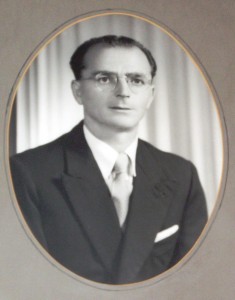
Mro. Dalli composed a number of symphonies, marches, funeral marches, and several hymns, including the one of this Band Club and also of Saint Lawrence, known as the great one, for choir, tenor and Bass. This hymn was executed for the first time on the eve of the feast of Saint Lawrence celebrated in 1972. In addition to this Band, he directed other band clubs, including St. Joseph of Ħamrun, Leone of Gozo, Queen’s Own of Isla, the Malta Shipyard Band Club, and Band Club of the Movement of Workers, the Malta Labour Party. He led our band club, during which it also changed the name, for a full 28 years: from 1952 until he died in 1980.
Mro. Hector Dalli was born in Zejtun on 18 June 1914, son of Ġużeppi Marija and Evanġelista Mercieca. Along with Hector, they had four other sons. The first musical education received by Hector, along with his brothers, was from his father, who was also a great musician. In fact, Mro Dalli senior was appointed the first conductor of the Żejtun Band Club following the separation form the Beland Band Club. At 9 years of age, Hector Dalli was trained in the flicorno and then changed to the trumpet with the Beland Band CLub. He also knew how to play the piano.
However Hector Dalli furthered his studies and continued training in harmony, compositions, instrumentalisation and direction under Maestro Joseph Casapinta. Mro Dalli was shortly after appointed Assistant Director at Żejtun Band Club. While in this position, he continued his musical studies and at 25 years he achieved a great success in the Music Theory Examination of the London College of Music where he scored 91 out of 100 and earned the first place to graduate in the A.Mus.LCM. Later on, Mro Dalli was also appointed Maestro of the Beland Band Club of Żejtun.
Mro. Paul Schembri (1980 – 2015)
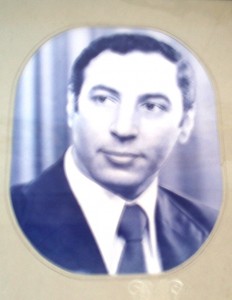 Mro. Paul Schembri M.I.S.M.M.I.W.M was born in Luqa on 13 February 1931, son of Joseph and Maria Carmela, nee Costa. His parents were both great musicians, his father a violinist and his grandfather was First baritone in the Royal Theatre. From his childhood, he showed great attachment to music and began his first musical studies with the Saint Andrew Band Club of his native village. Mro Schembri made appreciable progress, and at 12 years of age he was playing in public the difficult composition, Un Concerto Per Euphonium. He continued his musical studies under the advanced conductors Anton Muscat Azzopardi and Profs. Henry Galea.
Mro. Paul Schembri M.I.S.M.M.I.W.M was born in Luqa on 13 February 1931, son of Joseph and Maria Carmela, nee Costa. His parents were both great musicians, his father a violinist and his grandfather was First baritone in the Royal Theatre. From his childhood, he showed great attachment to music and began his first musical studies with the Saint Andrew Band Club of his native village. Mro Schembri made appreciable progress, and at 12 years of age he was playing in public the difficult composition, Un Concerto Per Euphonium. He continued his musical studies under the advanced conductors Anton Muscat Azzopardi and Profs. Henry Galea.
He joined the King’s Own Band and later became its soloist on Euphonium and later, the assistant director. Besides conductor and director of the St Lawrence Band Club and St Andrew’s Band Club, he was also Maestro with the Melita Band of Msida, Duke of Connaught of Birkirkara, Saint Mary of Qrendi and the Royal Air Force Band (Malta). On several occasions, he also directed British and Scottish bands, including Musselborough Trades Brass Band of East Lothian, Scotland.
Mro. Schembri is considered as a skilful conductor, as well as one of the best composers of his times. He has over 200 compositions, including band marches and funeral marches, waltzes, symphonies and hymns. Among these, one has to say that the Fantasia Centenaria, the symphony Chiara, the overture Canena, the symphonic march Deborah and the sonatina La Tromba Magica stand out. Mro Schembri’s compositions are also found abroad, such as in the UK, Canada and Australia.
In 1982, he participated in a Competition in London the the Fantasia Centenaria where he won the Diploma of Merit. It must be said that this Fantasy was singled out by MRo Andrew Lloyd Webber, who was part of the jury. Mro Schembri ended his tenure at the club during the year 2015, due to health reasons.
Mro Jonathan Abela (2015 –)
Mro Jonathan Abela was born on 16 April 1972 and is the son of Carmelo Abela and Mary nee Brown. He was born in Pieta` but baptised in the Parish of St. Lawrence in Vittoriosa. During his first years, he lived in La Valette Street in Vittoriosa. Later on his family moved to Żabbar. Jonathan is married to Lorraine nee Grech and have two children, Luke and Gabriel. Once married, Mro Abela and his wife moved to Kalkara, where they still reside at present. Jonathan is a Civil Servant official and is currently working in the Information Technology section within the Ministry of Health and Energy.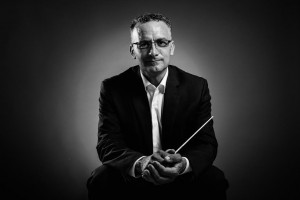
Jonathan began studying music at the age of seventeen years under Mro. Ray Sciberras. After eleven months, of lessons, he made his first appearance with the Maria Mater Gratiae Banda of Zabbar where he played the slide trombone. At the same time he began studying the musical theory, also under Mro Sciberras. After six years in musical theory where he passed all grades, in 1997 he also pażżobtained the A.Mus.LCM diploma. Meanwhile, he continued to study the slide trombone with various other Maestros.
Jonathan played the Slide Trombone with various orchestras, bands and other groups. He also played with the National Orchestra which was under the direction of several foreign conductors. He also played with the Orchestra of Fr John Galea, the Orchestra of the Amadeus Choir of tenor Brian Cefai, and the Orchestra of Dion Buhagiar among others. While a great number of musical programmes with other band clubs are also common, Jonathan also played with various bands in other concerts including: Tejatru Unplugged wit Renzo Spiteri as well as with local 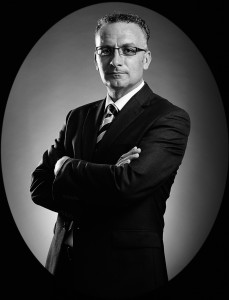 bands Fakawi and Brikkuni. He was also a fixed member of the band Etnika who succeeded in Malta and was invited several times to play abroad. Mro Abela also took part in several musicals including Chicago and Pantomimes, Peter Panto and Living Legends. He also played with several Big Bands including Johan Strauss Big Band under the leadership of Paul Abela and also participated in the Malta Jazz Festival, with Val Valente Big Band, as well as the Freddie Mizzi Big Band. Jonathan also participated in the Voices choir band. In recent times, he also participated in the concert organised by the PBS orchestra in Ta’ Qali. this orchestra was under the baton of Mro Paul Abela and Mro Joe Brown, who happens to be his cousin. On 26t December 2014, Mro Abela once again joined Mro Joe Brown to perform in the charity programme Strina, which was shown on all local TV stations. It must be said that Mro Abela also plays the Base Guitar.
bands Fakawi and Brikkuni. He was also a fixed member of the band Etnika who succeeded in Malta and was invited several times to play abroad. Mro Abela also took part in several musicals including Chicago and Pantomimes, Peter Panto and Living Legends. He also played with several Big Bands including Johan Strauss Big Band under the leadership of Paul Abela and also participated in the Malta Jazz Festival, with Val Valente Big Band, as well as the Freddie Mizzi Big Band. Jonathan also participated in the Voices choir band. In recent times, he also participated in the concert organised by the PBS orchestra in Ta’ Qali. this orchestra was under the baton of Mro Paul Abela and Mro Joe Brown, who happens to be his cousin. On 26t December 2014, Mro Abela once again joined Mro Joe Brown to perform in the charity programme Strina, which was shown on all local TV stations. It must be said that Mro Abela also plays the Base Guitar.
Mro Abela was appointed assistant Director with the Saint Joseph Band Club of Kalkara. Later on he was also appointed Assistant Director of Saint Bartholomew’s Band of Għargħur, Saint Gregory Band of Sliema and also Beland Band of Żejtun. He was also appointed a music teacher at the Maria Mater Gratiae Band CLub of Żabbar. In 2004, he was appointed musical director of the Saint Joseph Band Club of Kalkara and is still the conductor till today. Throughout these years, Mro Abela conducted these various bands on a number of occasions.
Mro Abela composed a number of Marches and funeral marches, Waltzes, Hymns and other musical arrangements. He also composed three tone poems for concert band. Parts of the last tone poem were played during the audition which was organised by the Saint Lawrence Band Club of Vittoriosa in order to appoint a new band Maestro, which audition was won by Mro Abela.
